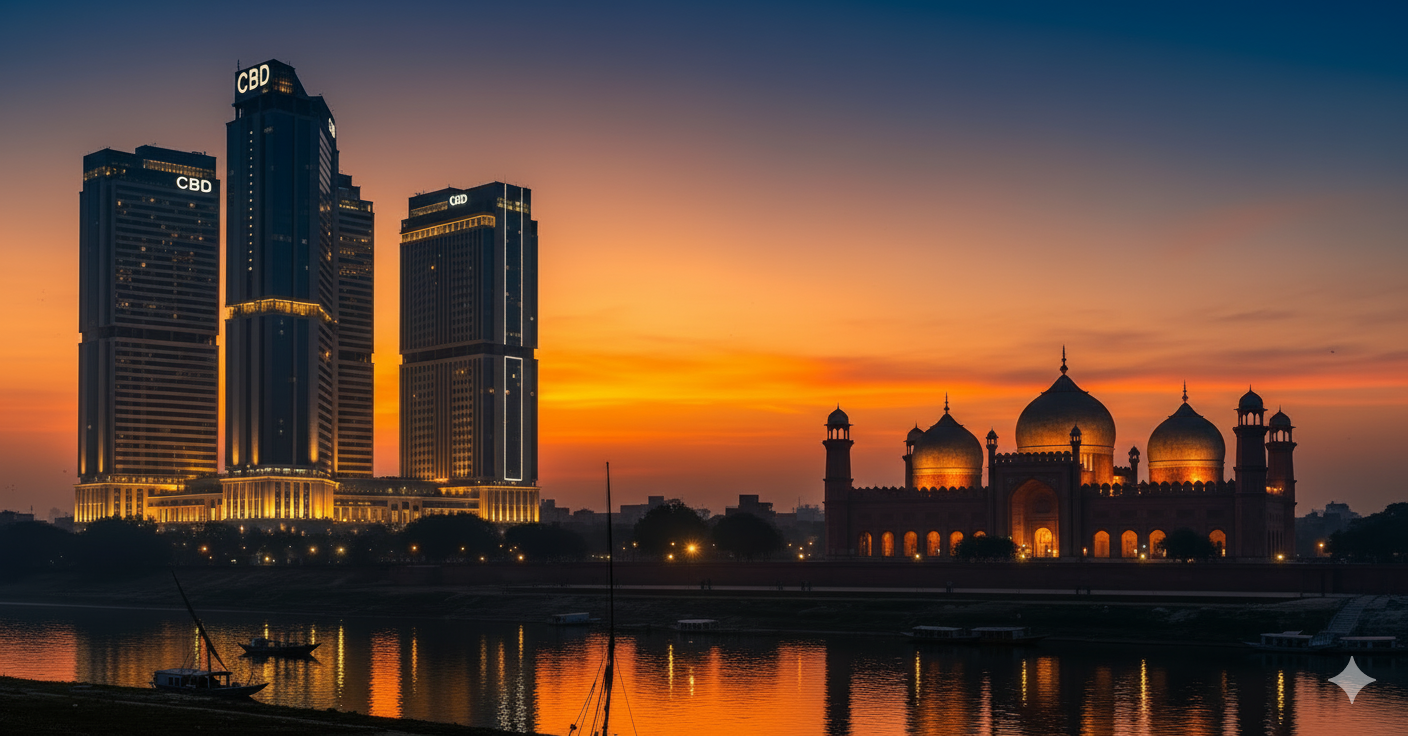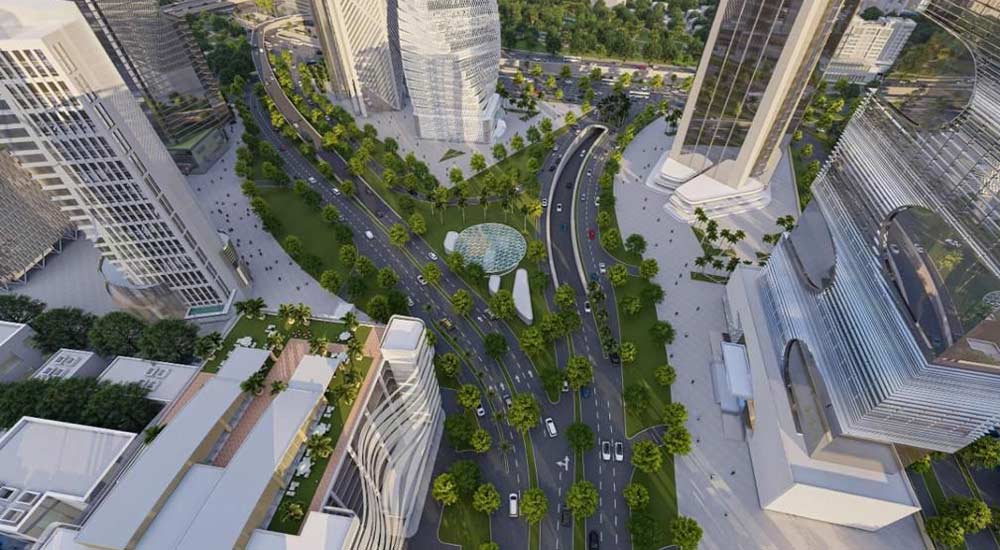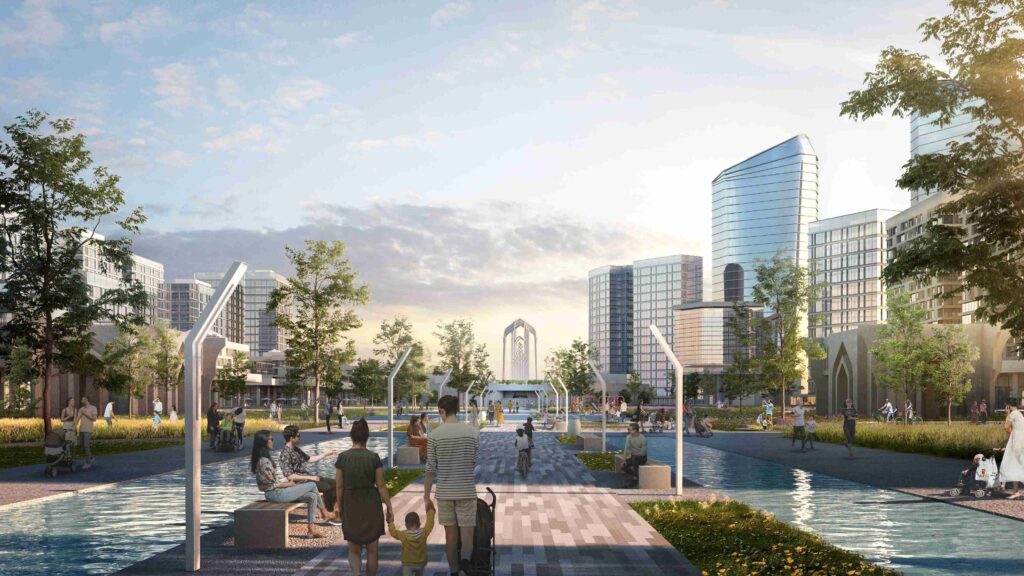Every city wears its history on its skyline. In Lahore, that story began with the Mughals, who gave us domes, mosques, and gardens that still carry the city’s soul. The colonial era added red-brick institutions and civic buildings that defined order and discipline. Later, modernist Lahore rose in concrete blocks like Alhamra and WAPDA House—symbols of a young nation embracing practicality.
But through all this, Lahore stayed close to the ground. The city expanded outward, not upward. Skyscrapers belonged to postcards of Dubai or Shanghai, not to the City of Gardens. That is what makes CBD Punjab such a break from the past. For the first time, Lahore is sketching towers as high as 750 feet, dreaming of a skyline that signals ambition as much as tradition.

From Walton’s Runway to Visionary Grounds
This vertical journey begins in the most unexpected place—Walton Airport. For decades, it was a flat stretch of runway where pilots trained and planes hummed over a city that was steadily crowding around it. By 2021, its purpose had outlived its potential.
That February, the government closed the airport and created the Punjab Central Business District Development Authority (PCBDDA) to imagine something entirely new for its 1,200 acres. What started as a land-use shift soon grew into a visionary urban experiment: turn an old airfield into a modern district of skyscrapers, public plazas, and 24/7 life.
By September 2021, the first plots—marketed as Lahore Prime—were auctioned for an astounding Rs21.59 billion. In a city used to measuring land in marlas and kanals, the sheer scale of this transaction showed how eagerly investors were ready for a vertical future.

(Locally Lahore)
CBD Punjab isn’t just about real estate—it’s about rewriting the rules. In 2022, the Civil Aviation Authority (CAA) gave a rare approval for towers up to 750 feet, breaking height restrictions that had long kept Lahore’s skyline low.
Since then, auctions have raised billions more, each round reinforcing investor confidence. What once felt like an ambitious sketch on a master plan is now shaping up as Pakistan’s most valuable vertical district.

(EstateX)
Signature Plots & Skyscraper Projects
Some of CBD Punjab’s landmark projects are already redefining what Lahore’s skyline will look like:
- Plot 1-03, Lahore Prime
- 42 floors | 499 ft | ~1,098,219 sq ft built-up area (CBD Punjab Official)
- Sirius (Plot 1-05)
- 63 floors | 750 ft | ~2,141,783 sq ft built-up area
- Poised to become Pakistan’s tallest approved tower (CBD Punjab Official)
- Zameen ARX
- 33-storey, 420-ft tower by Zameen Developments
- Offices, residences, rooftop leisure, and premium amenities
- Completion expected by 2030 (Zameen Developments)

Sirius—the 750 ft giant set to become Pakistan’s tallest approved skyscraper.
Architects, Designers & Political Will
Ambitious skylines don’t rise by themselves. Behind CBD Punjab is a coalition of architects, policymakers, and private developers:
- Sameer Aftab Sial, PCBDDA’s Director of Architecture & Planning, who has shaped the masterplan and shared its vision with future architects through study tours.
- Imran Amin, CEO of PCBDDA, who calls CBD Punjab a “global stage” for Pakistan’s vertical future.
- Developers like Zameen Developments, committing billions to build signature towers.
It’s this partnership—state vision, design leadership, and developer investment—that makes CBD stand apart from past projects.
FAQs
Sirius, at 750 ft and 63 floors.
PCBDDA’s Architecture & Planning Wing, led by Sameer Aftab Sial, with developers like Zameen Developments.
Zameen ARX is targeting 2030 completion.
It’s the only district in Pakistan with CAA approval for towers up to 750 ft.
Premiums are already rising in adjacent neighborhoods thanks to its prestige and connectivity.
Conclusion
For generations, Lahore was called the city of gardens. With CBD Punjab, it may soon be known as the city of towers.
From Mughal domes to 21st-century glass façades, every layer of the skyline reflects ambition. CBD Punjab is the latest statement—that Lahore is ready to rise, not only in height but in confidence, culture, and vision.


